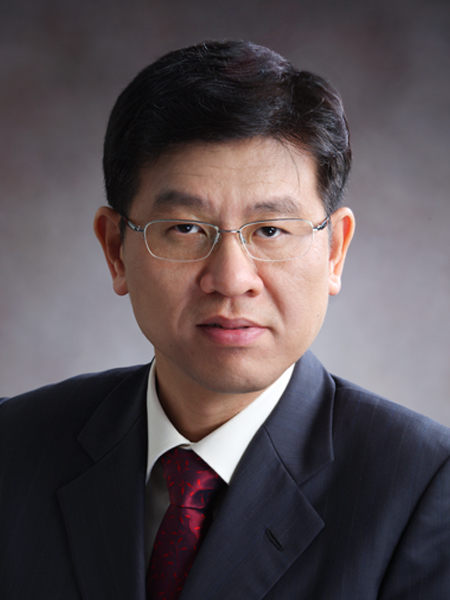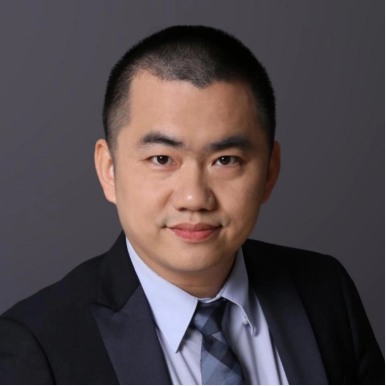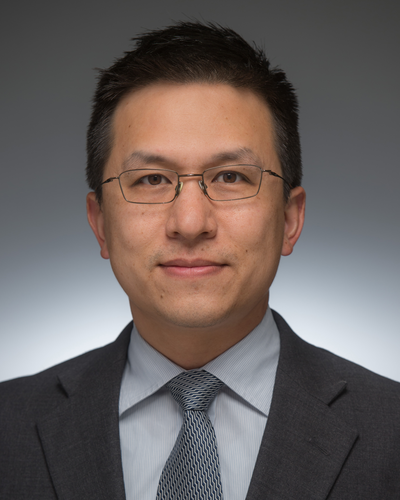Keynote Speaker 2025
Keynote Speaker Ⅰ

Prof. Hwee Tou Ng
Fellow of ACL
National University of Singapore, Singapore
Brief Introduction: Professor Hwee Tou NG is Provost's Chair Professor of Computer Science at the National University of Singapore (NUS). He received a PhD in Computer Science from the University of Texas at Austin, USA. His research focuses on natural language processing. He is a Fellow of the Association for Computational Linguistics (ACL). He has published papers in premier journals and conferences, including Computational Linguistics, Journal of Artificial Intelligence Research (JAIR), ACM Transactions on Information Systems (TOIS), ACL, NAACL, EMNLP, SIGIR, AAAI, and IJCAI. His papers received the Best Paper Award at EMNLP 2011 and SIGIR 1997. He is an associate editor of Journal of Artificial Intelligence Research (JAIR) and an action editor of ACL Rolling Review. He served as the editor-in-chief of Computational Linguistics (July 2018 - January 2024) and ACM Transactions on Asian Language Information Processing (TALIP) (May 2007 - May 2013). He also served as an editorial board member of Computational Linguistics and Journal of Artificial Intelligence Research (JAIR), the book review editor of Computational Linguistics, and an action editor of the Transactions of the Association for Computational Linguistics (TACL). He was an elected member of the ACL executive committee and a former secretary of ACL SIGNLL. He was a program co-chair of EMNLP 2008, ACL 2005, and CoNLL 2004 conferences, and has served as an area chair of ACL, NAACL, EACL, EMNLP, SIGIR, AAAI, and IJCAI conferences and as a session chair and program committee member of many past conferences including ACL, EMNLP, SIGIR, AAAI, and IJCAI.
Speech Title: Just Go Parallel: Improving the Multilingual Capabilities of Large Language Models
Abstract: Large language models (LLMs) have demonstrated impressive translation capabilities even without being explicitly trained on parallel data. This remarkable property has led some to believe that parallel data is no longer necessary for building multilingual language models. In this talk, I will present a systematic study on the impact of adding parallel data on LLMs’ multilingual capabilities, focusing specifically on translation and multilingual common-sense reasoning. Through controlled experiments, we demonstrate that parallel data can significantly improve LLMs’ multilingual capabilities.
Keynote Speaker Ⅱ

Prof. Yi Cai
South China University of Technology, China
Brief Introduction: Prof. Yi Cai serves as Dean of the School of Software Engineering at South China University of Technology. He is the Director of the Ministry of Education's Key Laboratory of Big Data and Intelligent Robotics. He received a PhD in Computer Science and Engineering from the Chinese University of Hong Kong. His research focuses on natural language processing, knowledge engineering and multi-modal processing. As a Distinguished Member of the China Computer Federation, Prof. Cai participates in several technical committees related to natural language processing and database systems in CCF. He has published more than 230 research papers in peer-reviewed journals and conference proceedings, including IEEE TKDE, IEEE TIP, IEEE TASLP, ACL, SIGIR, AAAI, IJCAI, EMNLP, etc. He has served as an Associate Editor of IEEE TASLP and CMC-Computers, Materials & Continua. He was a general co-chair of APWeb-WAIM 2021, program co-chair of APWEB-WAIM 2018, ICEBE 2021, IEEE DSC 2020 and CCAC 2024 conferences.
Speech Title: Logical-Structure-Aware Natural Language Generation
Abstract: Natural Language Generation (NLG), as a crucial branch of natural language processing, has achieved significant progress in both theoretical and applied aspects in recent years. Its goal is to generate grammatically correct and semantically coherent natural language text from structured or unstructured inputs, with wide-ranging applications in dialogue systems, text summarization, machine translation, and story generation, among others. Although existing generative models have made significant progress in terms of grammar and fluency, they still exhibit deficiencies in the comprehension and application of logical reasoning. The lack of logical capability not only leads to interpretive biases in models but also results in the generation of logically invalid conclusions, posing potential risks in practical applications. In formal logic, the validity of a conclusion depends on the correctness of the logical structure in the reasoning process. Enhancing a model's awareness of logical structures can not only improve its understanding of human reasoning but also further prevent the generation of invalid content. This speech focuses on four key scientific challenges in the critical technologies of natural language generation with logical structure awareness: (1) Logic Structure-Enhanced NLG: To improve understanding of structured logical expressions, we propose SLEtoNL, which transforms logical expressions into tree and graph structures. Using specialized encoders, SLEtoNL captures structural features better than sequential models, achieving more accurate semantic parsing. (2) Implicit Logic Structure Representation: Existing models struggle with implicit logical structures in text. Our Logic Control Framework (LCF) partitions representation spaces into logic-valid and invalid regions via contrastive learning. By adjusting representations, LCF enhances logical validity in generated content. (3) Logic-Structure Guided Generation: Data-driven models often overfit shallow features, ignoring deeper reasoning. The Abstract-level Deductive Reasoner (ADR) addresses this by abstracting concrete content into symbols, forcing the model to focus on logical structures. ADR improves generalization across data distributions. (4) Symbolic Tool-Augmented NLG: To mitigate computational inaccuracies, we integrate symbolic tools with data-driven models. Inputs are parsed into symbolic representations for precise computation, combining neural semantic understanding with symbolic precision.
Keynote Speaker Ⅲ

Assoc. Prof. David Chiang
University of Notre Dame, USA
Brief Introduction: David Chiang (PhD, University of Pennsylvania, 2004) is an associate professor in the Department of Computer Science and Engineering at the University of Notre Dame. His research is on computational models for learning human languages, particularly on connections between formal language theory and natural language, and on speech and language processing for low-resource, endangered, and historical languages. He is the recipient of best paper awards at ACL 2005 and NAACL HLT 2009, and a social impact award and outstanding paper award at ACL 2024. He has received research grants from DARPA, NSF, Google, and Amazon, has served on the executive board of NAACL and the editorial board of Computational Linguistics and JAIR, and is currently on the editorial board of Transactions of the ACL.
Speech Title: What Transformers Can and Can't Do: A Logical Approach
Abstract: Neural networks are advancing the state of the art in many areas of artificial intelligence, but in many respects remain poorly understood. At a time when new abilities as well as new limitations of neural networks are continually coming to light, a clear understanding of what they can and cannot do is more needed than ever. The theoretical study of transformers, the dominant neural network for sequences, is just beginning, and we have helped to make this into a fruitful and fast-growing area of research.
Our particular approach is to explore these questions by relating neural networks to formal logic. It is well known that finite automata are equivalent to regular expressions, and both are equivalent to a logic called monadic second-order logic. We want to establish similar connections between neural networks and logics. We have successfully proven that one variant of transformers, unique-hard attention transformers, are exactly equivalent to the first-order logic of strings with ordering, which allows numerous expressivity results from logic to be carried over to unique-hard attention transformers. We have also proved a number of results relating other variants of transformers (including transformers as they are used in practice) to other logics, which lead to more new findings about what transformers can and can't do.
I will give an overview of the significant progress made so far in this area, and some directions for future research.





